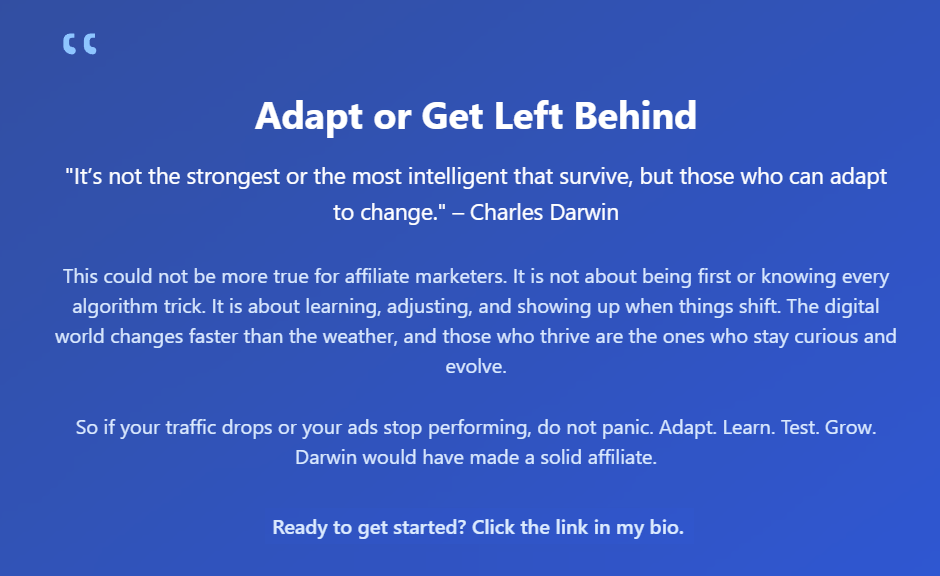
Myth-Busting the Affiliate Marketing Industry
Affiliate marketing has existed for decades, yet it continues to be shrouded in misconceptions and myths. As a result, many businesses overlook its potential or misunderstand how to leverage this powerful marketing channel effectively. In this blog post, we will bust some of the most common myths about affiliate marketing and provide a clearer picture of its value.
Understanding Affiliate Marketing: The Basics
Before discussing the myths, let's clarify affiliate marketing. Affiliate marketing involves a business partnering with external websites or individuals (affiliates) to promote its products or services. The affiliates earn a commission for each sale or lead they generate through marketing efforts.
Common Myths About Affiliate Marketing
Myth 1: Affiliate Marketing is a ‘Get Rich Quick' Scheme
One of the most pervasive myths about affiliate marketing is that it's an easy way to generate substantial income quickly. This misconception is often fueled by misleading advertisements and success stories highlighting only positive outcomes.
Reality: Affiliate marketing requires time, effort, and strategy. It involves building trust with your audience, selecting the right products to promote, and continuously optimizing your campaigns. While it has the potential to be lucrative, success in affiliate marketing is seldom instant or effortless.
Myth 2: Affiliate Marketing is Only for Big Brands
Another common myth is that affiliate marketing is only beneficial or accessible to large, well-established brands. Small businesses and startups often believe they lack the resources to succeed in this marketing channel.
Reality: Affiliate marketing can be highly effective for businesses of all sizes. It can level the playing field by allowing smaller companies to reach a broader audience through a network of affiliates. Small businesses can achieve significant growth by selecting affiliates aligning with their brand values and target market.
Myth 3: Affiliates Don’t Provide Quality Traffic
Some marketers believe that traffic generated through affiliates is of lower quality than traffic generated through other marketing channels. They worry that affiliate-driven traffic might not convert well or may attract non-serious buyers.
Reality: When the right affiliates are chosen, the quality of traffic from affiliates can be just as high as, if not higher than, other channels. Businesses can drive high-quality, converting traffic by partnering with affiliates who genuinely connect with their audience and promote relevant products honestly.
Myth 4: Affiliate Marketing is Set and Forget
Another myth is that once affiliate partnerships are established, little to no ongoing effort is required. This misconception leads to neglecting relationships and failing to optimize performance.
Reality: Success in affiliate marketing requires continuous management, analysis, and improvement. Regularly interacting with affiliates, providing updated resources, and monitoring campaign performance are critical components of a thriving affiliate program.
Myth 5: Affiliate Marketing is Purely a Performance-Based Model
Many believe that affiliate marketing is strictly performance-based, meaning affiliates only get paid for successful sales or leads. This myth downplays the variety of compensation structures available.
Reality: While performance-based models are standard, affiliate marketing can also include other structures such as:
- Pay-Per-Click (PPC): Affiliates earn money based on the number of clicks their links generate.
- Pay-Per-Lead (PPL): Affiliates receive compensation for leads generated, such as sign-ups or form submissions.
- Pay-Per-Sale (PPS): Affiliates earn a commission for each sale resulting from their referrals.
Debunking Myths: The Path to Successful Affiliate Marketing
Choosing the Right Affiliates
Selecting the right affiliates is crucial for the success of your affiliate marketing program. Here are some tips for making the best choices:
- Identify affiliates whose audience aligns with your target market.
- Look for affiliates with a robust online presence and a good reputation.
- Consider affiliates who already have experience promoting similar products or services.
Providing Value to Affiliates
Building solid relationships with your affiliates is essential. Here are ways to add value:
- Offer competitive commissions.
- Provide high-quality marketing materials to help them promote your products effectively.
- Maintain open and regular communication to support their efforts.
Continuous Optimization and Monitoring
Successful affiliate marketing requires ongoing effort:
- Analyze performance data to identify what’s working and what’s not.
- Experiment with different promotional strategies and materials.
- Keep affiliates updated with new product launches and any changes to the affiliate program.
Final Thoughts
When properly understood and executed, affiliate marketing can be a powerful tool for driving sales, expanding reach, and growing your business. By debunking these common myths, you can develop more realistic expectations and implement strategies that lead to long-term success.
Like any other marketing channel, affiliate marketing requires dedication, strategic planning, and continuous effort. You can unlock the channel's true potential by choosing the right partners, providing valuable support, and consistently optimizing your campaigns.






